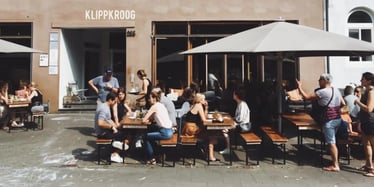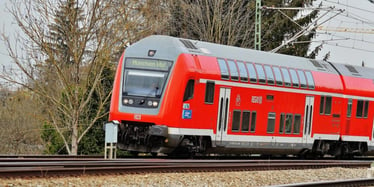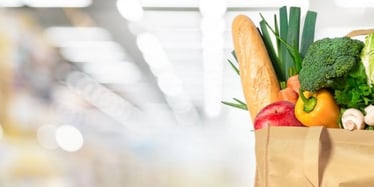Food Prices and Groceries in Germany

Contents
Food and grocery shopping is an important part of anyone’s weekly budget, and it’s important to include it when you’re calculating how much you need to live on when you move to Germany. Luckily, shoppers enjoy a relatively low cost of groceries in Germany, thanks to plenty of homegrown produce and competitive discount supermarkets.
Read on to learn more about the cost of groceries in Germany and for some money-saving tips.
Food prices and groceries in Germany
How much does food cost in Germany?
Food prices in Germany are generally considered to be quite low, especially compared to those of neighboring countries such as France, Italy, Austria, Sweden, and Belgium, where food is much more expensive. This is especially true of meat, cheese, bread, beer, wine, and vegetables, largely because Germany produces and grows a lot of its own food within its advanced agriculture industry.
Food prices in Germany, from Berlin to Munich, are pretty much the same. For example, there is only a small difference between the cost of a liter of milk in Munich (€0.84) and a liter of milk in Berlin (€0.81).
You may find some differences in price for regional products, however. German Beer, for example, is always cheaper when bought close to where it is brewed. The biggest differences in price are not between different cities but rather between large cities and small towns; you will likely pay a premium for shopping in a city center, where business rates are higher.
Where should you shop for groceries in Germany?
Groceries are readily available in Germany wherever you live. Even small villages will have a local grocery store, whereas towns and cities will have a mix of small grocery stores, farmers markets, food halls, and supermarkets (e.g. Edeka, Rewe, Lidl, Aldi, Carrefour, Kaufland).
However, shops in Germany are generally not open as late as shops in the UK, US, or other EU countries, and trading laws mean most shops are always closed on Sundays (except for a handful a year, and these dates change from year to year and city to city).
If you want locally grown food, head to farmers markets; shoppers pay a little more, but the quality is better and the environmental impact is lower. Seasonal items are generally cheaper, so buying them is a good way to save.
Shopping bags
Wherever you go shopping, remember to take your own shopping bags, as German shops usually charge for plastic bags. If you are going to a supermarket, you will also need coins (returnable) for the shopping cart.
List of common Food prices
How much do groceries cost in Germany?
Basic food prices vary according to where you shop, but these prices are the average for Germany.
- 1 liter of Milk - €0.70
- Loaf of bread - €1.30
- 12 Eggs - €1.82
- 500g of local Cheese - €4.45
- 1 kg Chicken breast - €7.32
- 1 kg of Rice - €2.09
- 1 kg of Apples - €2.20
- 1 kg of Potatoes - €0.97
- 1 bottle of mid-range wine €4.99
- 0.5 liter of local beer - €0.76
- 1 pack of Cigarettes - €6.40
A single person who plans meals carefully, doesn’t eat too much meat, and shops at discount supermarkets can do their weekly shopping for less than €50 a week (not including alcohol or toiletries). This makes the daily cost of food in Germany around €7 provided you eat leftovers for lunch and avoid eating out.
Tips for saving money
If you can make savings on your food budget, then your monthly income will go a lot further
Where should you shop for food at a low cost?
Luckily, getting the best deal possible is thought of as quite a traditional German trait. Germany is well known for its discount superstores, namely Aldi, Netto, and Lidl. Basic foods, fresh fruit, vegetables, wine, and beer are much cheaper at these supermarkets than general grocery stores.
Discount vouchers
Look out for discount vouchers which are often printed in free newspapers or bulk-buy offers on essentials that you can share with your housemates or friends.
What is Germany’s bottle deposit scheme (Pfand)?
Familiarize yourself with the Pfand scheme. In Germany, you pay a deposit on almost all glass and plastic drinks bottles, which is incorporated into the original price (usually around €0.08 - €0.25).
Make sure you collect these bottles up and either take them back to the retailer you bought them from or to a large supermarket (which usually takes any bottle with the Pfand logo on it) to have this deposit refunded.
If you do this once a month, you will get back a few euros which you can use towards the cost of your food shopping.
What is the DeutschlandCard?
Rather than collect various loyalty cards for different retailers, apply online for a DeutschlandCard which rewards loyalty points when you shop at a number of outlets including Netto and Edeka as well as 400 online shops.
You can save up your loyalty points and use the awarded value against the price of your food shopping. If you download the DeutschlandCard App, you will also be able to find a range of additional discounts which can help you save money off your weekly shop.
This might also be of interest to you

Living Costs for a Student in Germany
Wherever you study in Germany, it's important to be aware of the living costs and associated study fees before you apply. The good news is that the...

Transportation costs in Germany
Germany has a famously efficient public transportation system, which incorporates high speed trains, modern urban metro systems, clean buses, trams,...

Food Prices and Groceries in Germany
Food and grocery shopping is an important part of anyone’s weekly budget, and it’s important to include it when you’re calculating how much you need...




